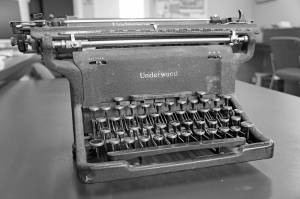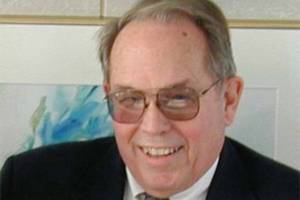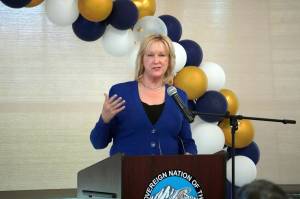Editorial: Lots to think about with ballot propositions
Published 4:17 am Friday, September 29, 2017
When voters head to polls on Tuesday, there will be three borough-wide ballot propositions for them to consider.
Proposition 1 asks voters outside of city limits to prohibit commercial marijuana operations in the borough’s unincorporated areas. Voters who reside within city limits will not vote on the proposition. A “yes” vote would enact a ban.
Proposition 2 asks voters to approve up to $5 million to replace the heating, ventilation and air conditioning systems in the George A. Navarre Borough Administration Building in Soldotna. A “yes” vote approves the issuance of bonds or other debt mechanism.
Proposition 3 asks voters to increase the maximum amount of a sale subject to borough sales tax from $500 to $1,000. The $500 cap would remain in place on residential rent. A “yes” vote would approve an increase in the sales tax cap.
Let’s take a look at the propositions in reverse order.
Proposition 3 is substantially similar to a question asked of — and rejected by — voters last year. However, the borough is looking at a roughly $4 million draw on its fund balance, and without a change to the equation, the fund balance would be gone in three years. The borough mayor and assembly have looked at other ways to close the gap, including a 0.5-mill increase in borough property taxes and a bed tax, but neither was passed.
There are a couple of reasons it makes sense to update the sales tax cap. First, the amount of $500 was set in 1965; if it were adjusted for inflation, the cap would be more than $3,000.
Another is that sales tax collected by the borough is dedicated to funding education — a mechanism that has worked well for the borough over the years. With the assembly agreeing to an increase in education funding, it makes sense to generate some of that revenue via a sales tax change. Sales tax receipts don’t cover the entire $54.6 million the borough spends on education funding, but an increase in sales tax revenue would allow property tax revenue to be spent elsewhere, or the administration and assembly to avoid raising the mill rate.
And the alternative? If voters choose not to increase the cap on taxable sales, the next borough mayor and assembly will be back to looking at a mill rate increase, some other form of tax increase, or cuts that so far have been unpopular with both lawmakers and borough residents.
Passing proposition 2 would allow the borough to repair and replace the HVAC system in the borough building in phases over the course of three years. While there has been some grumbling that the borough did not budget for the work in advance, the fact of the matter is that when you own a building — whether it’s a home, a business or a government facility — you need to maintain it, and the borough has gotten just about all it can out of the building’s original system. We as borough residents need to take care of our infrastructure, and it’s time to tackle this project.
The brings us back to Proposition 1, which is a difficult topic for many borough residents. One thing we’d like to point out is that, despite the debate surrounding the election, the vote is not a referendum on marijuana. Alaska voters made it legal for personal use in the privacy of your own home; the proposed ban doesn’t change that.
Proposition 1, in many ways, is more about zoning, and voters are being asked whether certain commercial enterprises should be allowed in the borough’s unincorporated areas. Keep in mind, regulations already adopted by the borough prohibit commercial cannabis establishments within 1,000 feet of schools, and within 500 feet of churches, recreation or youth facilities, and correctional facilities, among other restrictions.
We’ve been hearing a lot about all of the propositions for several months; we hope voters will put careful consideration into decisions at the ballot box on Tuesday.




